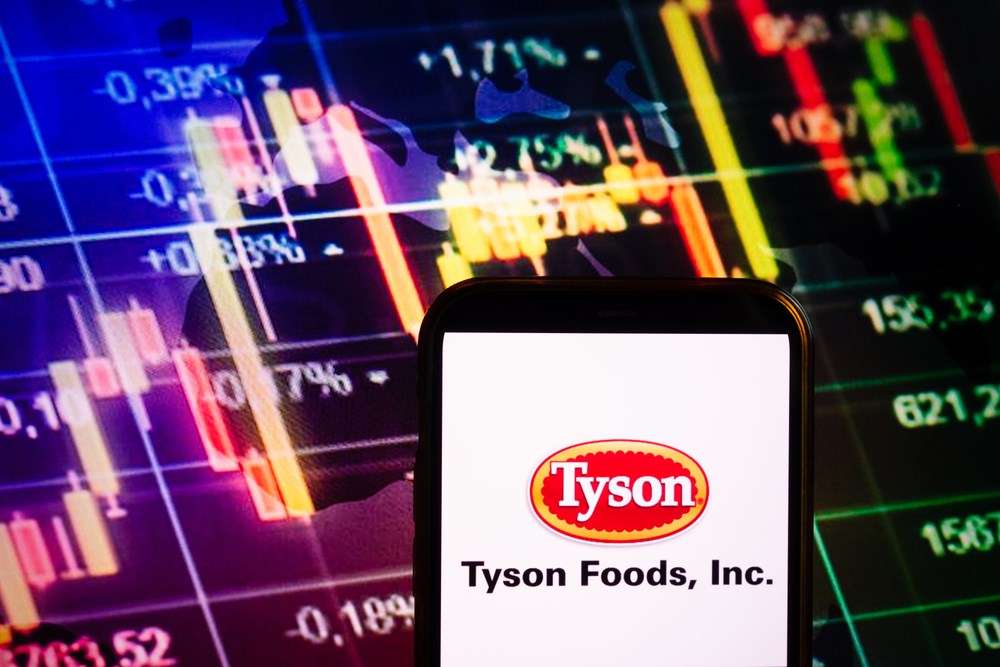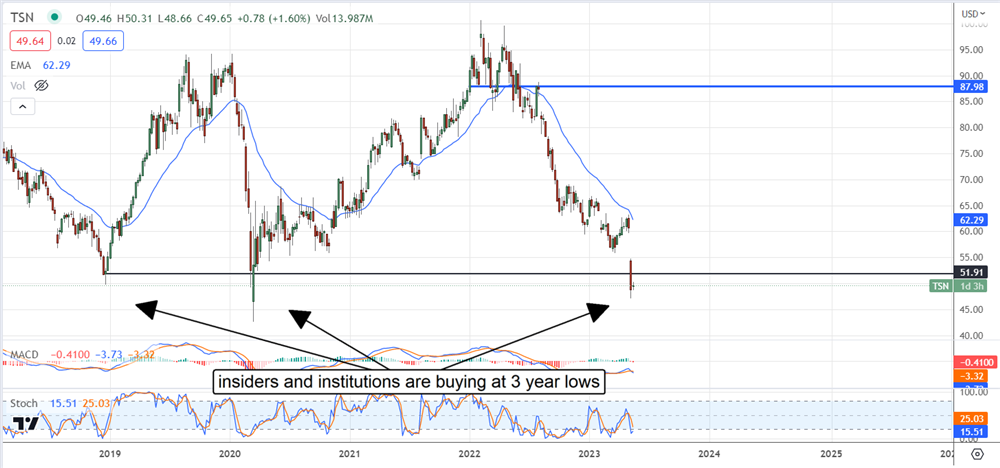
Tyson shares fell more than 7% following the Q1 earnings report and may fall further, but this opportunity for investors should not be ignored. The results were tepid and the guidance weak, but this is due to factors that are largely out of the company’s control. A shift in consumer habits and nuances in the beef industry has production levels and pricing declining, weighing on results. The caveat for bears is that this stock is trading at the lowest level since the COVID-19 pandemic panic sell-off and offering entry into a blue chip consumer staple that pays nearly 4.0% in yield.
The insiders are not ignoring this opportunity. Insiders started buying on May 9th, 2 days after the release, and several purchases have occurred. So far, 4 are showing up on Insidertrades.com’s tracking page, including buys by a director, the CEO, an EVP, and a major shareholder. Purchases are worth more than $1.8 million, more than double the amount sold in the previous 12 months, and have total holdings up to nearly 2.0%. This trend may continue, regardless; it is a sign this stock is trading at a deep value despite the rise in P/E.
The company lowered its guidance for the year, and the significant Q2 shortfall in EPS has the P/E at a stunning 31X and roughly double the stock's prior valuation. That comes down to more realistic levels relative to next year’s consensus estimates, but there is a risk those estimates will fall. In that scenario, this stock could fall to even lower levels, where it would present an even more attractive entry point.
The Institutions May Have Called The Bottom In Tyson Foods
The institutional activity in Tyson Foods is telling. The institutional activity spiked in calendar Q1, with both buying and selling increasing, but the selling outpaced buying by a wide margin and pushed the price action to the March 2022 lows. Since then, the institutional activity has been even more robust and now, with shares at a 3-year low, the buying is picking up. Activity since the Q2 report has been mixed but, on balance, favors a bottom-in-the-price action. Tyson will likely continue to bottom at this level if this develops into a trend.
The dividend is 1 reason the institutions are interested in this company. The stock pays nearly 4.0% at these price points, and the payout is relatively safe. This year will be touchy, the payout is more than the new consensus for earnings, but the balance sheet is in good enough shape to see them through to next year. Liquidity was more than $2.1 billion at the end of April and was expected to remain above the $1 billion minimum set by the board. This includes $1.75 in new loan facilities. However, there is no change to the balance sheet except cash is down compared to last year.
Investors might expect the pace of dividend increases to slow. The next increase is due with the next declaration, which should come out following the Q3 earnings release. The company has been increasing at a 12% CAGR, but a low-single-digit increase is more likely this year if they increase it.
The Technical Outlook: A Downdraft, At Bottom?
The price action in Tyson is bearish and could fall further if not for the presence of a significant support target, insider buying, and institutional activity. While price action may drift lower near term, volatility and sideways action are more likely from this point on. The low end of the range may be near the pandemic low of $42, but support may confirm at a higher level. If not, this stock could fall to $40 before hitting the next target.


